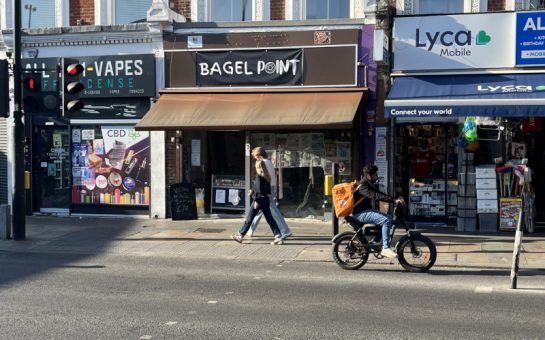Our SW Londoner reporter Chris McHugh looks explores the psychology behind immorality in the wake of the London riots.

Five deaths, an injury list that includes 16 bystanders, 186 police officers and five police dogs, £200 million worth of damage and local economic activity locked in submission.
It reads like this year’s Christmas list sent from beyond the grave by Osama bin Laden, Colonel Gaddafi and Kim Jong-Il.
But this is what the London rioters achieved this summer.
Justice continues nearly five months on, with 100 homes raided recently, and 62 arrests.
This follows the BBC documentary Mr Reeves and the Riots, as the owner of an iconic Croydon furniture shop questioned the lack of morals in those who burned it down.
It can be difficult to understand why people act in evil ways – but psychological research suggests we can all be evil in particular group situations.
In his 1971 Stanford Prison Experiment, psychologist Philip Zimbardo concluded that group members can become evil when their identity is anonymous, when playing stereotypical roles and when obeying charismatic leaders.
Zimbardo simulated a prison, with male volunteers randomly designated roles as prisoner or guard. The guards could run the prison however they wanted to maintain order.
They became cruel towards innocent ‘prisoners’ – forcing them to dress and act like women, commanding excess physical activity and, as prisoners became weaker, orchestrating pornographic abuse.
The guards were anonymous as individuals because they wore uniforms – a symbol of power. This meant they were each identified as a group member rather than as an individual.
The fact that other like-minded guards were mistreating the prisoners meant more guards felt justification to follow suit. As anonymous individuals, they lost moral responsibility.
But anonymity alone does not explain why group members chose to act in evil ways.
Zimbardo believed the guards were playing stereotyped roles of prison guards, on which they based their adopted identities.
Even psychologist Zimbardo became immersed in his role as prison superintendent – more concerned about running the prison than the psychological wellbeing of the innocent people playing the prisoner roles.
Zimbardo was a charismatic leader, able to guide people to a shared goal, without realising. No guards challenged his instruction, showing how easy it is to follow authority.
Zimbardo’s principles also apply to the London rioters’ behaviour.
Many rioters wore hoods which served as a uniform, and as more people looted, the group’s behaviour became more accepted and inviting to outsiders.
The protection of anonymity on offer increased and individual responsibility decreased, encouraging the evil behaviours we saw.
A regretful 18-year-old who looted in Croydon during the London riots talking on Mr Reeves and the Riots, said: “Your adrenaline takes over you when you see someone else do it.”
Psychologist at Royal Holloway, University of London, Mark Gould, 24, said: “Despite many rioters being a brother, employee or even a parent, the majority were youths.”
He said the role of a youth has connotations of rebellion, which individuals felt served as justification.
In support of this, the Croydon looter added: “A youth like me, you see a shop broken into; you’re not going to think twice about entering.”
Mr Gould added a charismatic leader is often essential in dictating evil. Young individuals were already angry about the lack of opportunities for them and poor relations between them and the police.
Charismatic leaders, often gang leaders, encouraged and orchestrated the chaos in retaliation through BlackBerry Messaging. They seemed to infect the minds of younger, impressionable youths who sacrificed their morals.
I do not excuse any of the evil behaviours of mindless rioters, rather I advise caution in group situations.
If we would not do something evil as an individual, do not do it in a group.
We must never neglect personal responsibility and morals for the promise of security, offered through a group, where its ideology or leader holds all the power.
We need to distinguish between authorities requiring our obedience, and brainwashers who need to be challenged.
Failure to do so is human weakness, and group members, like the London rioters, must be punished.



